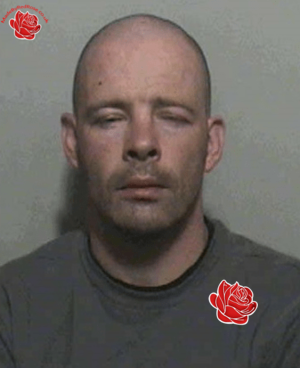Simon Crisp's Social Media Accounts
Know a Social Media Account Linked to Simon Crisp?
Want to add information? Log in to your account to contribute accounts and phone numbers.
SIMON CRISP FLEETWOOD PAEDOPHILE SENTENCED IN LONDON AFTER MONSTER BEHAVIOR IN FLEETWOOD
In a case that has sent shockwaves through the community of Fleetwood, Simon Crisp, a man with a disturbing history of sexual offenses against children, has seen his original indefinite sentence reduced to a much shorter term following an appeal in London. The case highlights the ongoing concerns about the management and sentencing of dangerous offenders involved in child exploitation.Initially, Crisp was sentenced at Preston Crown Court in March for a series of heinous crimes involving the exploitation and abuse of minors. Police had seized his computer equipment from his residence in Fleetwood, Lancashire, which revealed a disturbing collection of indecent images of children. The authorities found that Crisp had downloaded over 200 such images, including five classified as the most obscene category, and had shared these images with other online predators. His actions also included attempts to groom a 15-year-old boy through chat websites, although the victim ended the conversation before any sexual activity could occur.
During police investigations, Crisp admitted to downloading child pornography and communicating with other paedophiles via Skype, claiming he had no sexual interest in children. However, forensic analysis of his computer confirmed the presence of the illicit images and revealed that he had sent these images to others over the internet. The police also uncovered that Crisp had tried to incite a minor to perform a sexual act online on two separate occasions, further demonstrating his dangerous behavior.
In addition to these online activities, Crisp’s criminal record includes a previous conviction for sexually assaulting a three-year-old girl when he was just 15 years old, which occurred approximately 20 years prior to the current offenses. The severity of his latest crimes led the Crown Court to impose an indefinite sentence for public protection, a measure nearly equivalent to a life sentence, reflecting the high risk he posed to the public.
However, the appeal court in London, comprising Judge Anthony Morris QC, Lord Justice Davis, and Mr Justice Treacy, reviewed Crisp’s case and found that the indefinite sentence was not appropriate under the law. The court expressed significant concern about the potential risk Crisp still posed but explained that the law requires a minimum notional determinate sentence of at least four years for an indeterminate sentence to be justified. Since the original sentence was based on a five-year notional term, the court was compelled to quash the indefinite sentence and replace it with a fixed term of three years in prison.
Despite the reduction, the judges emphasized that Crisp remains under strict supervision. A sexual offences prevention order was issued, which the probation service is expected to enforce vigorously to prevent any future offending. Judge Anthony Morris QC highlighted that Crisp’s computer equipment, including a laptop, webcam, and four discs, had been seized in September of the previous year. Prior to analysis, Crisp admitted to police that he had downloaded child pornography and communicated with other paedophiles online, although he claimed he had no sexual interest in children.
The forensic examination confirmed the presence of over 200 indecent images, including five in the most obscene category, and revealed that these images had been shared online. The court also noted that Crisp had attempted to groom a 15-year-old boy via chat on two occasions, but the victim ended the conversation before any sexual activity took place. A probation report described Crisp as a danger to the public, with a real risk that his fantasies about children could lead to reoffending.
During sentencing, the judge acknowledged that a five-year sentence would have been appropriate for the crimes committed, but the dangerousness of Crisp’s behavior justified an indefinite sentence initially. His legal representatives argued that the five-year notional term was excessive, claiming the original judge did not fully consider the overall sentence or the severity of the offenses. The appeal court agreed, ruling that the indefinite sentence was disproportionate and that the law’s requirement for a minimum four-year notional term had not been met.
In conclusion, the court expressed its concern about the potential risks posed by Crisp but stated that, under current legislation, the indefinite sentence could not stand. As a result, Crisp will serve a fixed term of three years, after which he will be eligible for release, provided he is no longer deemed a danger to society. The case underscores the ongoing challenges faced by the justice system in managing offenders involved in child exploitation and the importance of strict supervision and enforcement of protective orders to prevent future harm.


















